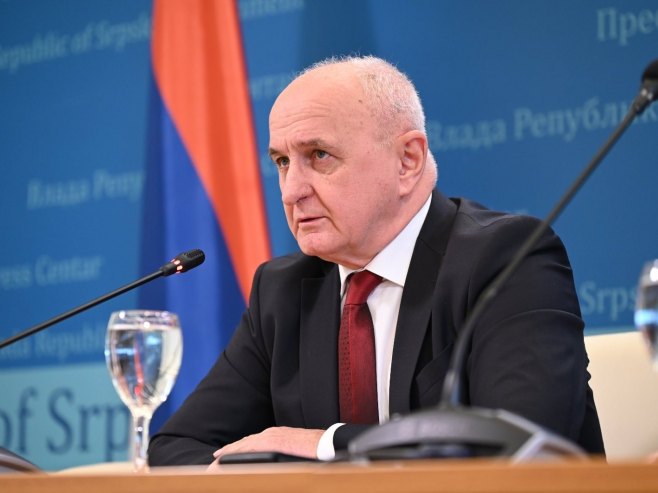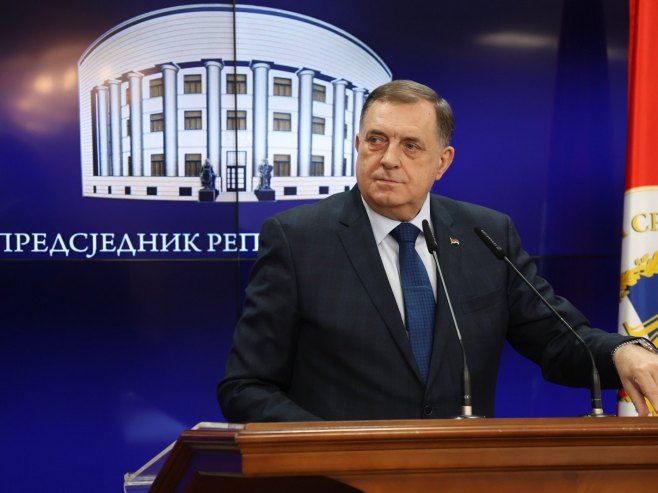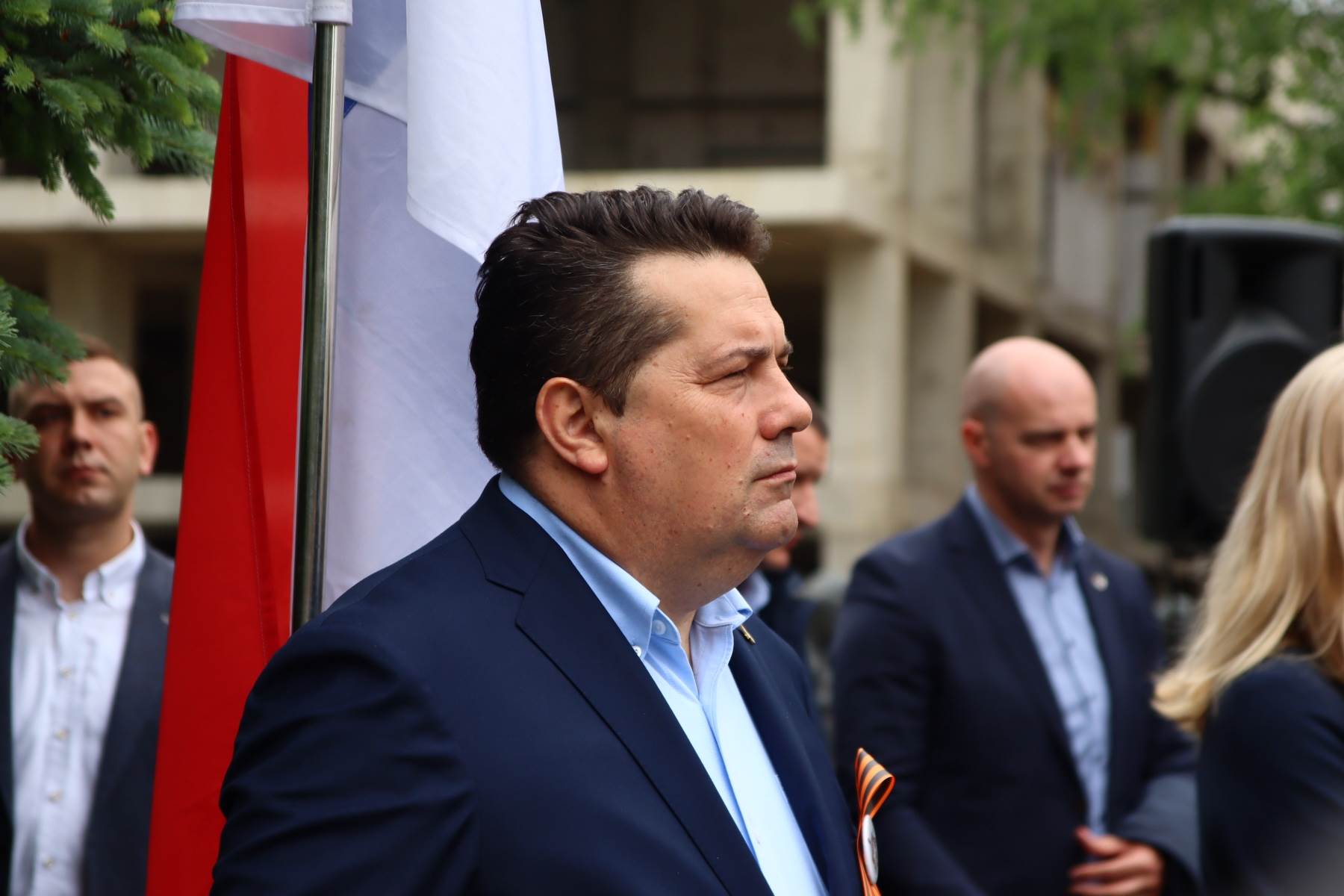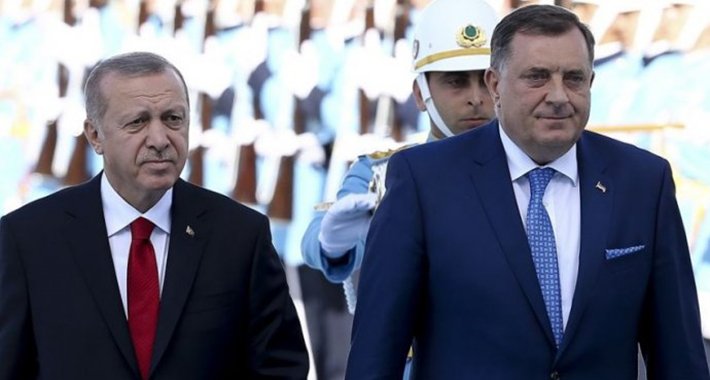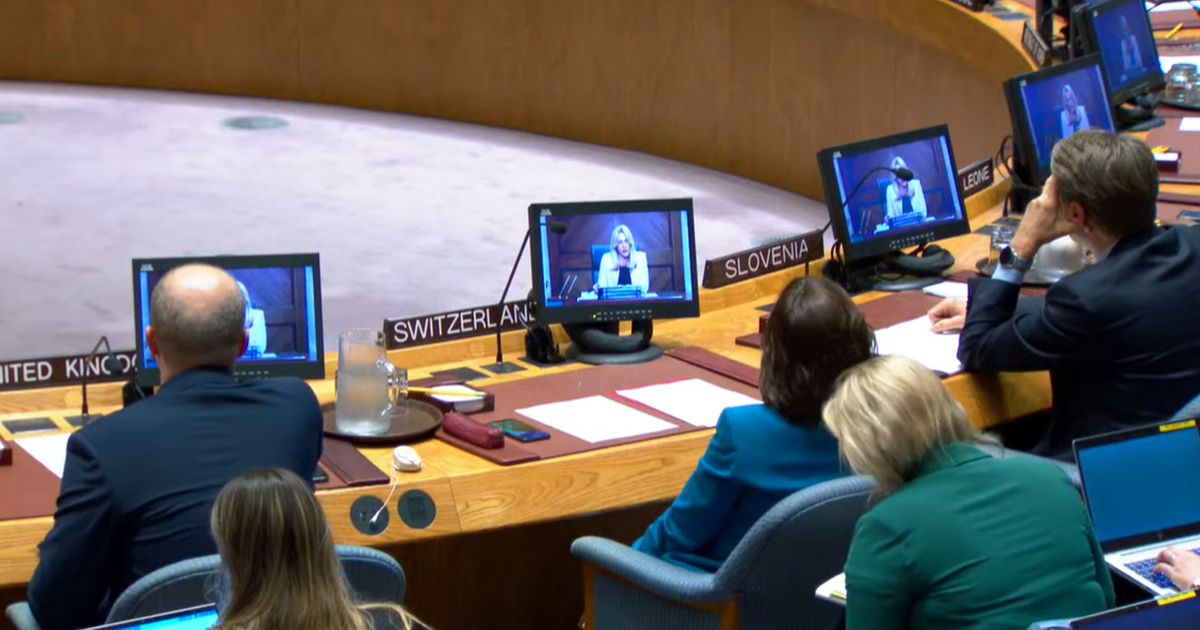SNSD President Milorad Dodik said that the Dayton Peace Agreement has been dismantled and no longer exists, because some actors wanted to take from it only what suited them, while ignoring everything that did not.
“For any intervention in the Dayton Agreement, the consent of all parties was required. It clearly states that the parties are Republika Srpska and the Federation of BiH, but they gave the High Representative the Bonn powers to impose decisions,” Dodik said in the RTS documentary “The Letter and Spirit of Dayton – 30 Years of the Dayton Agreement.”
Dodik noted that the Bosniak side continuously emphasizes its dissatisfaction with the Dayton Agreement and is essentially bothered by the recognition of Republika Srpska as an international factor and international subject.
He pointed out that the Venice Commission determined in 2005 that the annexes of the Dayton Agreement have an international character, which means that Republika Srpska itself also has an international character.
Dodik recalled that numerous competencies have been taken away from Republika Srpska since Dayton — the Army of Republika Srpska was abolished, fiscal policy and other powers were removed, and institutions such as the Armed Forces of BiH, the BiH Border Police, and various other agencies not envisioned by Dayton were introduced.
All of this, along with the constant imposition of laws and decisions by High Representatives, he said, resulted in the Dayton Agreement in its original form practically ceasing to exist — dismantled through measures aimed at unitarizing BiH.
He emphasized that High Representatives played the leading role in this process, noting that they were “installed through deception.”
“According to Dayton, the High Representative is appointed by the parties that signed Annex 10 of the Dayton Agreement, and after they choose him, he is confirmed by the UN Security Council,” Dodik said.
He reminded that this procedure was respected only during the mandate of the first High Representative, Carl Bildt, after which the signatories of Annex 10 were excluded from the selection process.
Dodik explained that the High Representative was introduced so that the two sides would not have to reach agreement on all issues, as originally required, but also emphasized that the High Representative was never authorized to impose laws falling under parliamentary competence — something that later became standard practice.
He recalled that former High Representative Carlos Westendorp warned as early as 1997 that such actions were not in line with Dayton, but Western governments ignored this.
“We have been living with that bluff for 30 years,” Dodik said, adding that it culminated in numerous imposed laws, especially Christian Schmidt’s decision to transfer property to the level of BiH.
“We said we would declare independence if that decision was enacted. Their response was: ‘Let’s get rid of Dodik first, and then we’ll do it again,’” Dodik stated.
He stressed that the Constitutional Court of BiH is a story of its own — an institution imposed by High Representatives Wolfgang Petritsch and Paddy Ashdown, where the two Serb judges and two Croat judges were regularly outvoted by the will of three Bosniak judges and two foreign judges.
“When they imposed that structure, they admitted it was not in line with Dayton, but claimed it would help the development of BiH. That decision alone shows they intended to blatantly dismantle the Dayton Agreement, while using propaganda to blame us and the Croats for undermining the Constitutional Court,” Dodik concluded.
Source: RTRS

